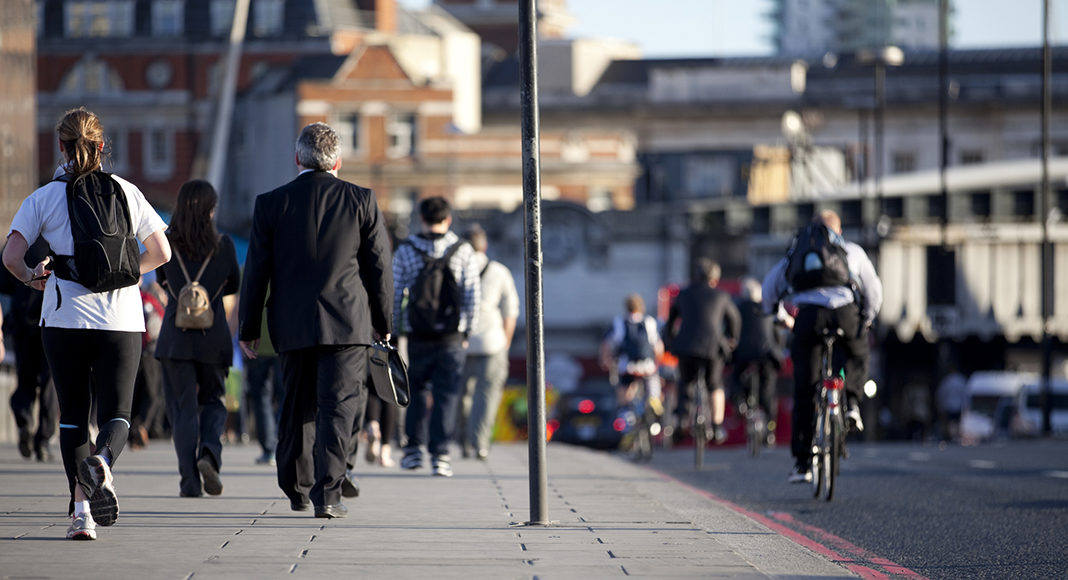Pedestrians, cyclists and those who use public transport should be given priority when new roads are built or upgraded, according to the National Institute for Health and Care Excellence (NICE).
In a draft quality standard, NICE says planners should develop policies and initiatives to ensure that safe, convenient, inclusive access for pedestrians, cyclists, and people who use public transport is maximised and is prioritised over motorised transport such as cars, motorbikes and mopeds.
The aim is to get people to be more active in their day-to-day lives by encouraging safe, convenient, active travel that is accessible for everyone, including older people and people with limited mobility. NICE also suggests that planners should aim to provide tactile paving and even surfaces for those with limited mobility, and non-reflective, anti-glare paving surfaces for people with visual impairments.
âGetting people to be more physically active by increasing the amount they walk or cycle has the potential to benefit both the individual and the health system,â said Professor Gillian Leng, Deputy Chief Executive and Director of Health and Social Care at NICE. âAs a society we are facing a looming Type 2 diabetes crisis, which is in part caused by people not exercising enough. We need more people to change their lifestyle and to take more exercise.
âPeople can feel less safe when they walk or cycle compared with when they drive. Weâve got to change this.
âSo asking planners to prioritise pedestrians, cyclists and those who use public transport when roads are built or upgraded can ensure they are safe, attractive and designed to encourage people to get out from behind their wheel.â
Joe Irvin, CEO of Living Streets, the UK charity for everyday walking, says that for decades our towns and cities have been built to prioritise motor vehicles; resulting in unhealthy air, congested roads and a decline in people walking everyday journeys.
âItâs time that towns and cities were built for everyone â first and foremost for those on foot,â Irvin said. âPlacing key services like schools, GP surgeries and bus stops within walking distance is vital. More people getting out and walking everyday journeys, such as to work or school, will make us a healthier country.â
A consultation period on the draft standard will run until 1 February 2019.



















